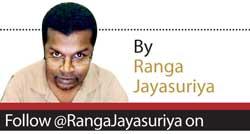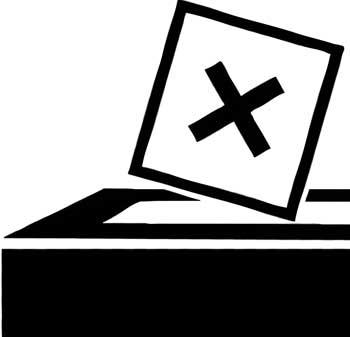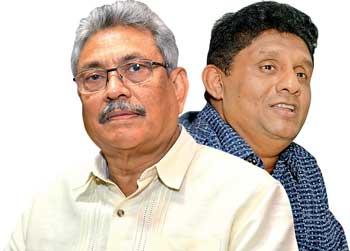Reply To:
Name - Reply Comment
 The liberal elite and their chattering classes share a common trait with their nemesis in despotism. They both are at times contemptuous and in others paternalistic of the average folks and consider that it is their prerogative to prevent these uncouth and ignorant masses from committing self-harm.
The liberal elite and their chattering classes share a common trait with their nemesis in despotism. They both are at times contemptuous and in others paternalistic of the average folks and consider that it is their prerogative to prevent these uncouth and ignorant masses from committing self-harm.
Last week when two civil society activists went to the court to prevent Gotabaya Rajapaksa, the SLPP candidate and probably the front-runner in the presidential election from contesting over the alleged irregularities over the latter’s citizenship, all that activism smacked of the same misplaced sense of entitlement. With the same zeal, Mahathir Mohammed,when he was the prime minister of Malaysia in his previous reign, locked up his primary adversary, Anwar Ibrahim; the Iranian clerical junta is vetting, and disqualifying election candidates, Vladimir Putin is locking up his presidential rivals and J.R. Jayawardene held a referendum instead of a general election. None of that played out well in their captive countries, they stymied their transition into mature democracies.

The strength of an electoral democracy lies in the free competition for the political office. Laws and ad- hoc measures that are intended to undermine the competition only create a choreographic version of elections which were so frequent in the Middle East, Africa and Central Asia. They are a sham.
Last week the court of appeal unanimously decided to dismiss the petition challenging Mr. Rajapaksa’s eligibility to contest the presidential election. The UNP has officially distanced itself from the court case. However, during the weekend, Minister Rajitha Senaratne told a rally that the UNP lawyers would go to the Supreme Court challenging the Appeal Court verdict. Irrespective of the legal context, courts are not the best place to decide who should run and who not in an election. The opposition against Gotabahaya’s eligibility is even murkier; it relies not on the law barring dual citizens from contesting elections, rather how the latter obtained his dual citizenship days after the election of Mahinda Rajapaksa to the presidency. These questions of his citizenship were not asked during years he was the secretary of defence. Now that they are being raised as a pretext to prevent his contesting of the election sounds opportunistic.
The UNP should beat Gotabaya Rajapaksa in the election. Machinations to prevent him from contesting would effectively disenfranchise millions of voters. Societies, where the mandate of voters is robbed or manipulated are bitter and resentful. That collective anger has exploded from the streets of Caracas to Tahir Square.
Despite all its flaws, Sri Lanka has held competitive multiparty elections throughout the last seven decades. When ad- hoc constitutional and legislative measures were used to erode free competition in the 80s, it created conditions that led to two civil insurgencies in the South and the North.
Sri Lanka has come a long away since then. The Appeal Court ruling is a vote of confidence in the independence of judiciary. It is also an illustration of the empowerment of independent institutions over the last five years under the 19th amendment. That is a marked departure from the subdued and politicized judiciary of the Rajapaksa era, where judges were influenced – or were impeached.
 Gotabaya Rajapaksa is not your typical Democrat. Nor is he so much of a defender of the rule of law. During his tenure as the secretary of defence, lawyers who appeared against him and the then government in the court were labelled as ‘traitors’ in the official website of the information centre that comes under the purview of the Ministry of Defence. Journalists were murdered and were forced to flee the country. Mr. Rajapaksa pooh-poohed these allegations with a visceral disdain ( Who is Lasantha?).
Gotabaya Rajapaksa is not your typical Democrat. Nor is he so much of a defender of the rule of law. During his tenure as the secretary of defence, lawyers who appeared against him and the then government in the court were labelled as ‘traitors’ in the official website of the information centre that comes under the purview of the Ministry of Defence. Journalists were murdered and were forced to flee the country. Mr. Rajapaksa pooh-poohed these allegations with a visceral disdain ( Who is Lasantha?).
Yet, same Mr. Rajapaksa exploited the full scope of legal privileges and loopholes, later when he was defending the charges of misappropriation of public funds to build the D.A. Rajapaksa museum. However, reminiscent of the days in the not so distant past, the acolytes of the Mr. Rajapaksa have now unleashed a barrage of venom at the two civil society activists who petitioned the courts against the latter’s presidential candidacy.
Those who are worried about wolves in sheep clothing entering into politics are indeed being concerned about the prospects of ‘one man, one vote, one time’; despots who reach the political office with the aid of competitive elections and democratic norms ( at the same time, espousing a self serving populism) only to kick the democratic ladder once they reach there and monopolize power.
That dismantling of the political office takes place in conjunction with the subjugation of independent institutions. Judges may be coerced or cajoled to toe the government line. Media and civil society will be muzzled.
Whether the independent institutions that delivered justice last week would retain their vigour and integrity in a few years time if Mr. Rajapaksa reaches the pinnacles of political power remains to be seen. Similarly, a heavy sense of suspense hovers over the fate of the dissent, including feisty journalists, and the future of basic freedoms that people have taken for granted during the past couple of years.
The Appeal Court ruling may have cleared some confusion. But, Sri Lanka as a country is heading towards an uncertain future.